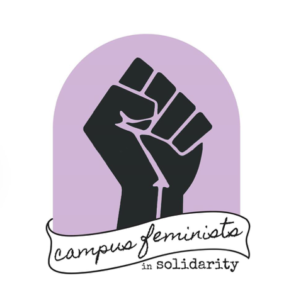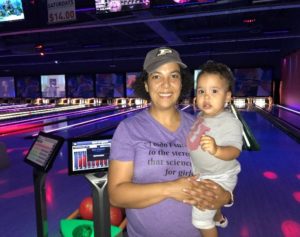College Activist Group—Challenges, Misconceptions and Overcoming Obstacles
By Moriah Weaver
The women’s studies and feminist activist group, Campus Feminists in Solidarity, had its first call-out meeting of the Purdue University Fort Wayne fall semester last Tuesday, Nov. 12.
The group seeks to create a community which can relate through common values regarding feminism and gender equality. They also hope to provide educational opportunities for students wanting to better understand the goals of the women’s studies program.
women’s studies program.
“Our goal is to provide a safe space for feminists on Purdue Fort Wayne’s campus,” said CFS president Shelby Thomas.
Thomas said the group strives to initiate discussions in which students do not feel held back in sharing what is on their mind regarding feminism-related issues. They are also particularly interested in helping non-feminists come to a better understanding of the movement.
“For me, when I think of feminism, I think everyone is equal. Men, women, people of the LQBTQ community, people of color, people with disabilities, everyone,” she said.
When speaking with Dr. Noor Borbieva, an anthropology and women’s studies professor at Purdue University Fort Wayne, she defined feminism as gender differences not creating inequality in and of themselves.
She also said that there are many misconceptions and misunderstandings associated with feminism and the women’s studies program. The most common she hears is that women are equal in our society.
“The kinds of harassment and dehumanization and tribalization that I see all around me, in the media, in what my students suffer…is troubling,” she said. “Not a semester goes by that I don’t hear horrific stories of gender oppression from my students.”
CFS treasurer Sam Schubert said that she has heard many false accusations regarding CFS, but the most troubling is that they serve no purpose.
“People think that we sit around and complain about stuff, but we don’t actually do anything,” she said.
Other misconceptions discussed by sources include that feminist group meetings are just “man hating sessions” and that the women’s studies program is useless in the academia environment.
It is likely that these stigmas contribute to many of the obstacles faced by CFS and the women’s studies program at Purdue University Fort Wayne. The group has dealt with repeated hostility from campus community in the past.
Thomas said that she had first-hand witnessed CFS posters being taken down by other people, one being a professor at the university.
The women’s studies program has also run into issues like this, almost being removed from the university as a major in 2017.
Professor Borbieva said that she saw someone had graffitied negative words about women’s studies on one of the department’s posters just the day before our discussion.
“It took major student mobilization to preserve women’s studies,” she said. “It’s a constant battle.”
Thomas said that when the program was under threat, the women’s studies students came together to advocate and petition for its protection. This led to a change in decision from the university to keep women’s studies as a program for students.
Professor Borbieva said that women’s studies are valuable courses for students—their goals being for women to understand the challenges they face, for students to be educated on the workings of power more broadly, to foster in students a commitment to activism, and to empower students and help them understand the workings of power in their own lives.
It is these principles which are enforced by Thomas and other CFS members. They hope to further interact with the Purdue University Fort Wayne community throughout the rest of the fall and spring semesters.
Next steps for CFS includes the start of a feminist book club and what the group calls, “The F Word”, in which women’s studies affiliated faculty is interviewed and explains how their research relates to feminist ideals. They hope to have these started before the end of the school year.
Schubert said that the group also hopes to get connected with other Purdue University Fort Wayne clubs and organizations to work together in hosting events for students.
“People need to come together with people who share their views, that’s where you find power. That’s where you find affirmation and you can feel good about who you are as a person and get through social connection with other people,” said Professor Borbieva. “That’s the joy of being a human, what else is there?”


